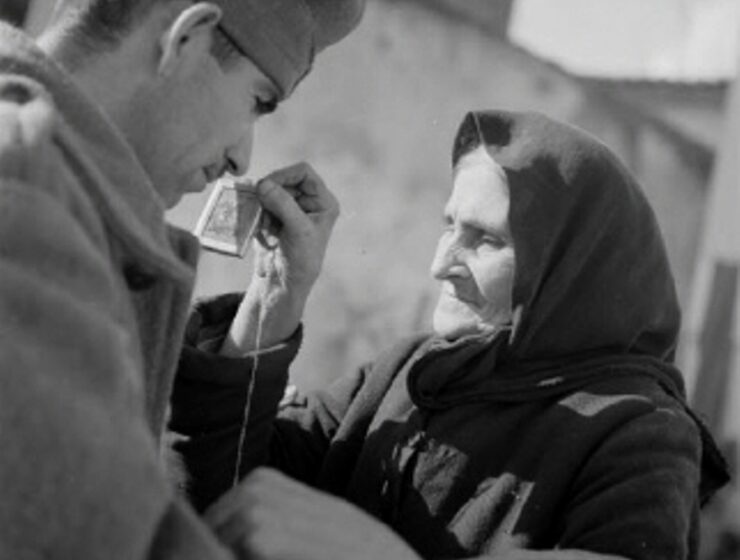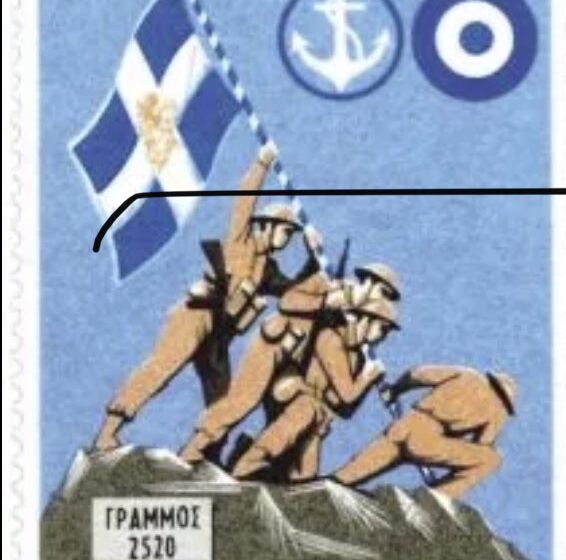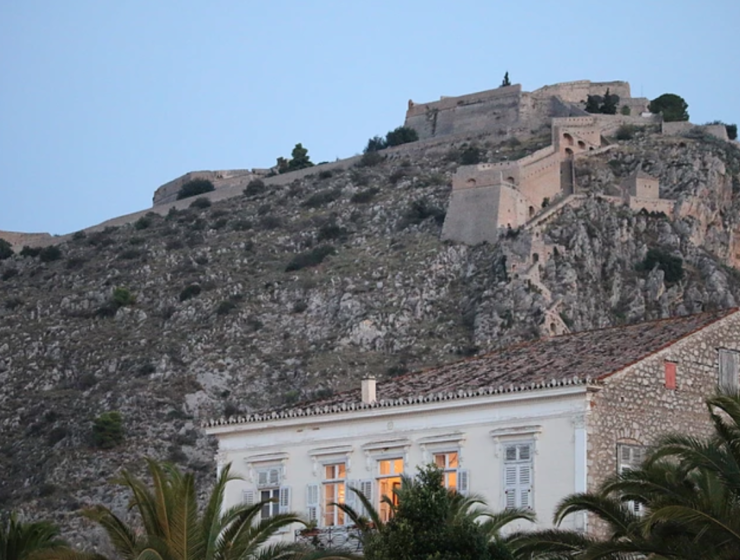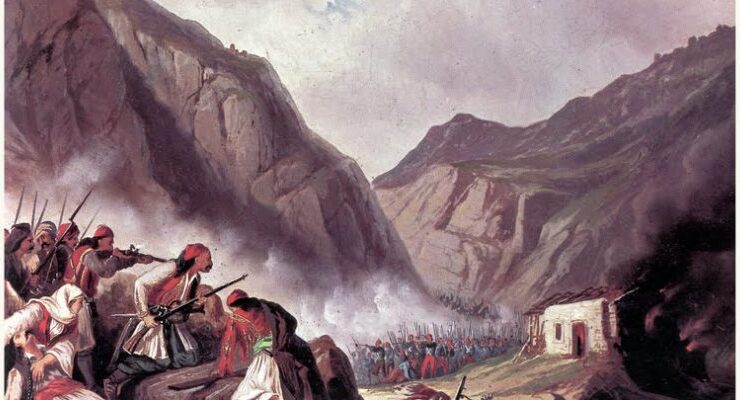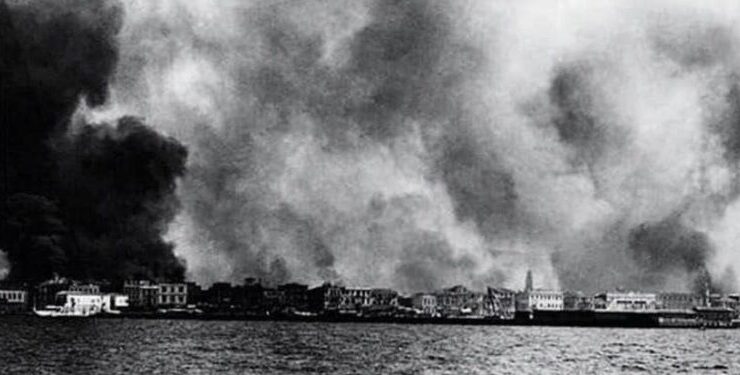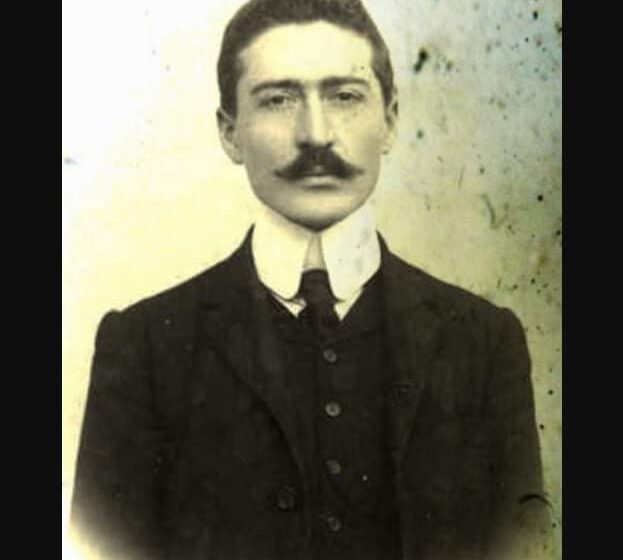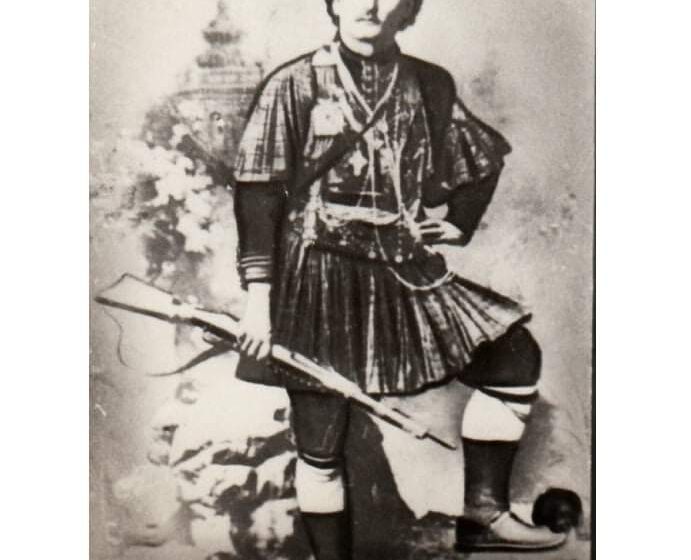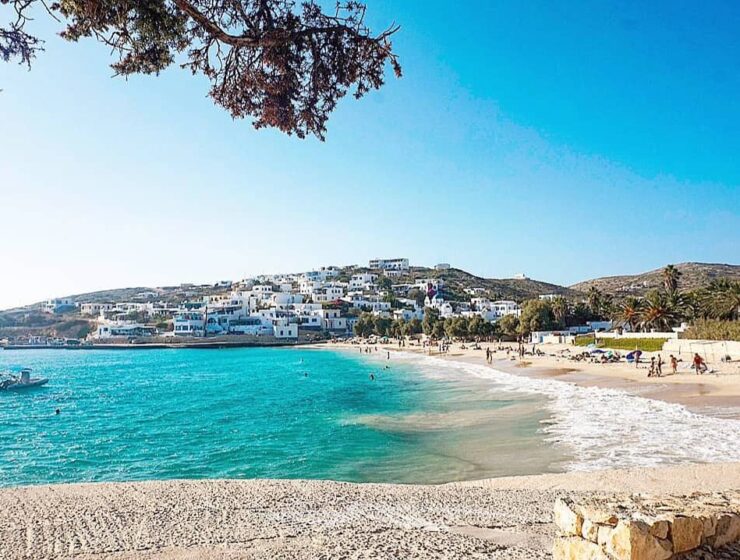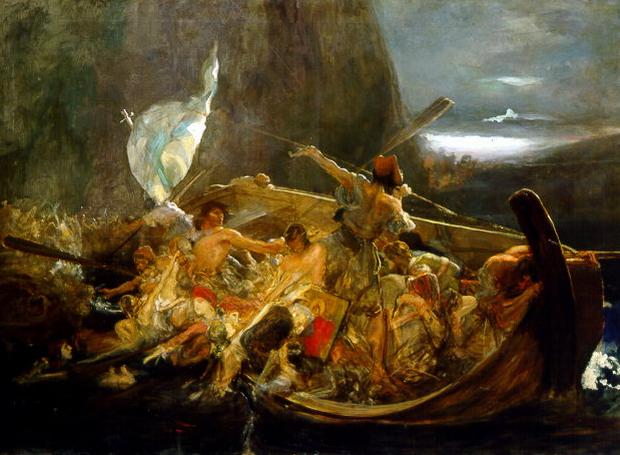On April 19, we honor Lord Byron, a fervent Philhellene whose £4,000 cheque—equivalent to £332,000 today—revealed by The Observer, underscores his vital support for the Greek War of Independence, funding a fleet to defend Missolonghi against Ottoman Albanian forces.
Tag: Greece 2021
The Hellenic Navy, led by the Georgios Averof battleship, defeated the second and last attempt…
The story behind the featured image of a Greek Mother giving her son what appears…
August 30th, 1949 – The Battle of Grammos-Vitsi After nearly 10 years of continuous fighting,…
The first capital of the modern Greek state is a picturesque seaside town in the…
The battle of Dervenakia is perhaps the most crucial battle of the Greek Revolution. It…
In this photo, the mother of infantry soldier Kostas Nikolaou gives him an icon of…
The Hellenic Navy, led by the Georgios Averof battleship, defeated the second and last attempt…
Athimos Gazis, From Millies in Thessaly, was a Priest, Revolutionary, Cartographer and significant figure in…
The story behind the featured image of a Greek Mother giving her son what appears…
On August 31, 1922, Kemal’s army wanted to destroy everything Greek that existed in the…
August 30th, 1949 – The Battle of Grammos-Vitsi After nearly 10 years of continuous fighting,…
Born in Athens but with family roots in Kastoria, Macedonia, he was a writer, diplomat…
The battle of Dervenakia is perhaps the most crucial battle of the Greek Revolution. It…
Born on August 12, 1800 in Lampovo in Northern Epirus, Zappas was a fighter in the Greek War of Independence and later, a businessman, philanthropist, national benefactor and founder of the modern Olympic Games.
Born in the village of Krania, midway between Agioi Saranda and Delvino in Northern Epirus,…
Donousa (Δονούσα) is an emerald island located in the southeastern Cyclades of Greece, with only…
On April 19, we commemorate the memory of Lord Byron, one of the greatest Philhellenes…
On August 31, 1922, Kemal’s army wanted to destroy everything Greek that existed in the…
June 21, 1824, the island of Psara, which had joined The Greek War of Independence on April 10, 1821, was invaded by the Turkish fleet, comprising 176 ships. At the time, it was estimated that there were 30,000 people on the island, 7,000 of which were locals and the rest refugees from Asia Minor and nearby Chios, which had been destroyed two years earlier.



